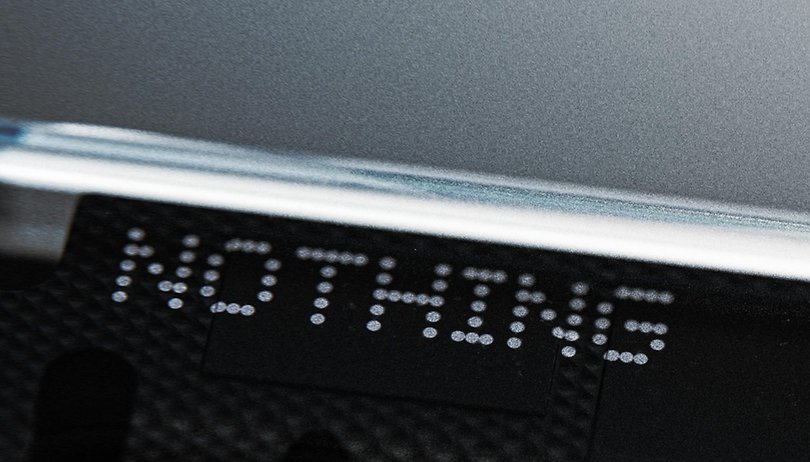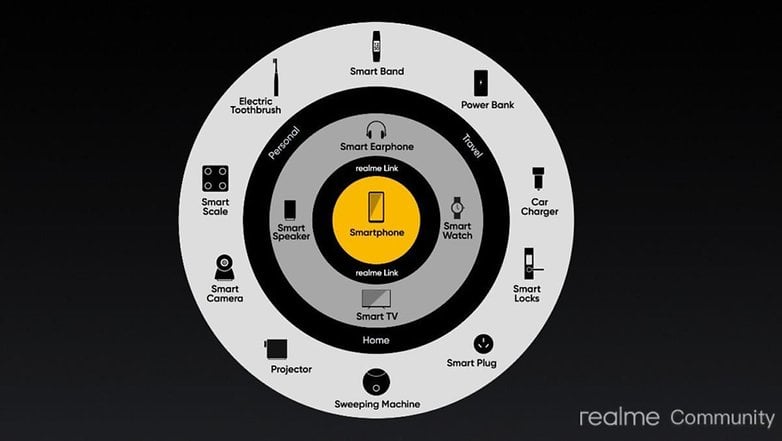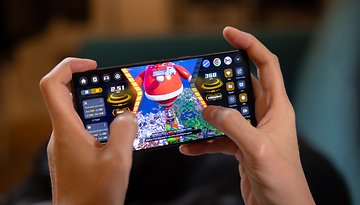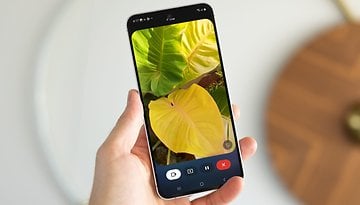'Nothing' and ambient computing: Can we really ditch tech devices?


Read in other languages:
There is great hype surrounding Nothing, the new start-up by former OnePlus founder Carl Pei. The very idea that technology needs to be more seamless, more organic, and smart enough to work on my behalf without me having to interact with it is a utopian dream. Making it seem almost impossible for us to live without a smartphone, right?
This is one topic that constantly pops up each time we talk about technology and what the future holds. Whether it remains in the realm of fiction with AI controlling interactive holographic user interfaces such as the one we saw in Iron Man or Minority Report, in other popular culture icons such as Judge Dredds, or perhaps certain NFC innovations that involve microchip implants, there is a fascination that abounds when it involves both technology and the organic. It is as though a cyberpunk dystopia will overcome us soon.
Specifically, THE big trend that the various tech giants seem to undertake is ambient computing, also known as ubiquitous computing. This is a concept that was first highlighted by eminent American tech journalist, Walt Mossberg, in an op-ed piece for The Verge in 2017.
"I expect that the end result of all this work will be that technology, the computer inside all these things, will take a back seat. In some cases, it may disappear completely, waiting to be activated by a voice command, a person entering the room, a change in blood chemistry, a change in temperature, a movement. Maybe even just a thought," Mossberg wrote in this post, just before he retired.
I found echoes of this thought in sections of Carl Pei's words when he spoke very vaguely about what his new company Nothing was supposed to be, and what it intends to roll out in the future.
Tech products are becoming more discrete
"I imagine a green field where people are picnicking and where there's no screen, no laptop screen, no smartphone screen, no smartwatch screen, no billboard screen," dreamt Carl Pei in his interview with The Verge. "It's kind of the end state."
The end state in which tech, or at least tech products and devices, would be one where they are invisible or simply work in the background without you knowing it. Isn't it ironic that life began without all of these devices, and now humanity has felt the burden of remaining connected to the world but not to each other, and want to return to what really matters in life - relationships that are near and dear to us? No doubt the current pandemic and its numerous lockdowns have led to such a thought as well. Questions must be asked, what is the state of nature from which technology wants to extract itself in order to arrive at an optimal end state? I would want to extrapolate this theory and claim it as mine, but I think that the state of nature to which we are subscribed to at present is derived from products and devices.
After the first iPhone's release, the Nostradamuses in the world of consumer electronics predicted that the smartphone eventually takes on the role of everything else - from portable music players such as Walkmans, Discmans, and MP3 players, to the digital camera and even TV.
An entire ecosystem of disconnected and independently functioning products, all rolled into a single device.
That pipe dream has more or less happened since the first smartphone was released, and I am not going to repeat the same story again. However, market logic and the constant need to expand and then diversify its catalogue in order to generate profits has forced manufacturers to produce other products whether wanted or not, resulting in the creation of new markets and needs.
Connected smartwatches, true wireless headphones, fitness trackers, smart speakers - the list continues to grow. The IoT and the wireless economy experienced a new boom that led to a new need to refocus itself as there are simply way too many products that are isolated by themselves, resulting in a need for a new ecosystem.
This is where the famous 1 + 4/8 + N strategies of manufacturers such as Huawei or Realme (all of them actually do it) come into play. Ecosystems that place smartphone in the center (the famous 1), being a central point in the matrix that connects to all of the other satellite products.

Making life as easy as possible when switching from one product to another in the same ecosystem is now a major challenge that all manufacturers are trying to tackle, meeting varying degrees of success. Through careful planning, Apple has built up a considerable lead over most of its competitors in this area.
Where Android is concerned, Huawei does seem to be handling this better than the rest. It has globalized its catalogue of products and services with the development of HarmonyOS, the same operating system that powers all of its mobile devices.
However, for all the developments, we are still looking at products and devices being the main "star". It might seem "seamless" for me to switch from my Samsung Galaxy S21 Ultra to my laptop via DEX mode, or perhaps playing my PS4 game on a monitor and then switching to my smartphone screen when I go to the bathroom, there is still the dependency on products that have their own limitations, and are also invasive in nature.
I don't want a tech of immediacy and "nothing"
From this perspective, the moniker "Nothing" that Carl Pei chose for his new startup makes a little bit more sense. He wants to close the gap between the user and the user experience. Get rid of the interfaces, spearheaded by hardware first and then if possible, software.
A doctrine of organic, almost symbiotic technology is still light-years away from reality. The smartphone will still remain, whether in your hands or in the cramped pocket of your jeans. The TV will be a mainstay in your living room, while your true wireless headphones will remain embedded in your ears.
The world has shifted towards a progressive digitalization of services and products over the last few years. Cloud gaming is one of the most notable, recent examples. This transition is still filled with plenty of uncertainties before it arrives at the ultimate goal.
Some of the challenges include white zones, declining purchasing power, the scientific challenges surrounding the issue of frequencies, software maintenance, programmed obsolescence...the list is long. All these without taking into consideration the potentially harmful side effects for consumers.
The absence of a physical product would result in a loss of control by the buyer over what he or she should own. The economics of subscription is a particularly striking example. All the more so as digitalization remains an illusion for the moment. There is nothing magical about cloud gaming/computing, as it still requires physical servers and physical computers to work.
Also read: Why we should be renting hardware
Out of sight, out of mind, but tech is still all about products. Besides that, I sincerely find it difficult to imagine a technosphere without any actual devices or products. At the very least, without any visible products. Having something that I can touch with my very own hands, a beautiful device, a unique product, actually makes sense to hold especially when I have paid money from my own pocket.
I do not want to buy an idea, an illusion, but less something that I have totally no control of. Admittedly, the convenience of having all my favourite music tracks at my disposal on Spotify is worth the entry price (in my opinion), but the evolution of tech is not going to stop just because I want to continue to resell my old tech products or simply because I want to show off to others my top-end hardware.
Talking about a post-smartphone era is totally unrealistic even in the near future, or at least that is what I think. As superficial as it may be, I cannot imagine doing without an actual product and being enthralled by its design. I need a physical interface to work with, if only to appreciate the product as such, but also to be able to master it.
The fact that Google is pushing the Ambient Computing agenda aggressively while pumping in lots of money, especially since the Pixel 4's release, has made me suspicious of tech giants who want to stow away their products and services in a subtle manner.
At the end of the day, I want to be able to place my smartphone down and turn it off. I want to be able to take my headphones out of my ears and place them on my bedside table when I am done listening to my music. I don't want a technology that remains imperceptible and yet is omnipresent, such as an invisible sentinel whose presence you would most probably forget while it stalks you round the clock, knowing your every word and movement.
Wow, have I become a conspiracy theorist? Am I now going to start wearing a tin-foil hat and ruin the comment sections of all the other tech sites when they talk about 5G? Of course not. However, I really do have a hard time seeing the dawning of a post-product era in the tech industry.
Ownership rights exist for a reason, and they must remain as a weapon for consumers while facing the onslaught of our ever-shrinking digital rights. Keeping a hold on service as a product would be almost impossible with ambient computing. Nevertheless, it is certain that the "invasiveness" of tech products is already a major issue for our industry that needs to be sorted out.
Call me a boomer if you like, but in my picnic basket, my smartphone and my wireless speaker will always be part of the deal.
Source: Walt Mossberg - The Verge




















Sounds like another hype overload from Pei. The kind of networking and info opt-in for this is prohibitive. Further, since there are no open interoperability standards, you'll have to source it ALL from one vendor. All the data will flow to its servers, then back to your devices.
Ubiquitous, continous surveillance as a service you're paying for in upfront hardware, installation and then ongoing subscriptions. Run from China where the government has its fingers in every business and ALL of the data.
Sounds awful.
I'm sure he'll get plenty of early adopters who aren't thinking this through.